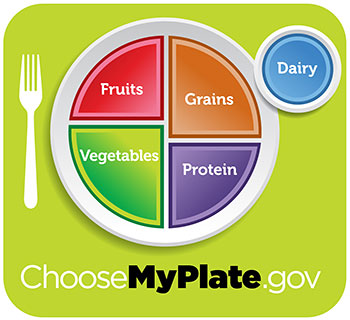Who Is the Paleo Diet Good for
FEATURE | Posted June 10, 2015
Is the paleo diet safe for your health?
UC Davis Health dietitian weighs in on latest food fad

Alex Nella selects redbor kale, Swiss chard and curly green kale — some of his favorite "super foods" — from UC Davis Health's weekly farmers market. Nella counsels children and their families on healthy eating as the lead dietitian in pediatric specialty clinics. He also offers food-choice tips to faculty, staff and students in the UC Living Fit Forever wellness program.
The popular Paleolithic diet (also known as the paleo, caveman, Stone Age or steak and bacon diet) centers on the idea that eating like our original ancestors is aligned with our genetics and therefore optimal for good health. A paleo dieter's food choices are limited to what in prehistoric times could be hunted, fished or gathered such as meats, fish and vegetables. The underlying theory is that the rise in chronic diseases in modern society stems from the agricultural revolution, which added grains, legumes and dairy to meals, leading to a host of chronic diseases and conditions — from obesity to allergies.
But is the paleo diet safe? UC Davis Health dietitian Alex Nella discusses the pros and the cons of the food fad.
Can we assume that cave people ate mostly meat?
Not really. People living in the Paleolithic period, or "cave people," ate whatever their surroundings afforded them. When surrounded by fish or marine animals, that's what they ate. In tropical habitats, they ate a variety of plant and animal foods. In certain environments, the majority of calories may have come from protein, but the bulk of the diet was still plants. So calling a diet that consists mostly of protein the "paleo diet" isn't accurate.
Is the paleo diet healthy?
It has the potential to be healthy. The typical paleo diet, however, puts most at risk for deficiencies in calcium and vitamin D, which are critical to bone health. At the same time, saturated fat and protein can be consumed far above recommended levels, increasing the risk of kidney and heart disease and certain cancers.
But shouldn't we reduce carbohydrates and dairy in our diets?
Not true for complex carbohydrates. Whole grains, fruits and vegetables are important fuels for brain and muscle activity. But most of us can and should eat fewer refined carbohydrates, which add unnecessary ingredients and calories but little fiber and protein and few vitamins and minerals to our diets. They also are often fortified just to appear healthy on nutrition labels.
Dairy is an individual choice. But if it's significantly limited and not replaced with alternative food sources of calcium, supplements of calcium and vitamin D may be necessary. Paleo advocates often say dairy promotes inflammation, but some research shows the opposite: low-fat dairy intake actually decreases inflammatory markers in the blood.
What do you like about the paleo diet?
It is high in fiber, potassium and antioxidants while being low in simple carbohydrates, sodium and sugar. It emphasizes local, sustainable, organic and non-GMO foods and grass-fed meat options. It discourages foods that are processed or have artificial ingredients and colorings. It encourages foods that make the body work hard to obtain calories while providing nutrients that optimize efficient use of those calories. It may kick-start weight loss and, at least in the short-term, improve blood sugar and lipid profiles.

A good resource for achieving dietary balance is ChooseMyPlate.gov from the U.S. Department of Agriculture.
What are the major downsides of the paleo diet?
The paleo isn't effective for sustained weight loss, as it is very difficult to stay committed to any diet that is too restrictive of one or more food categories. In terms of overall health, it could over time increase lipids like total and LDL (low-density lipoprotein, or "bad") cholesterol that raise the risk of heart disease. Not getting enough calcium increases the risk of osteoporosis, rickets and bone fractures. Chronically low carbohydrate intake may lead to an overuse of fat for energy, or ketosis. Medical supervision is recommended for those on the paleo diet, especially for anyone with heart, kidney, liver or pancreatic disease or who is interested in maintaining the very low-carbohydrate version of the diet.
What do you tell people who ask about the paleo diet?
I encourage them to use the paleo as the starting point of a healthy diet but to add beans, lentils, nuts, whole grains, and low-fat or nonfat dairy or other calcium sources such as dark leafy greens, tofu, and soy or almond milk. I also recommend that they carefully choose protein sources, emphasizing quality over quantity. Plate balance is the key. Good resources for achieving that balance are the ChooseMyPlate.gov recommendations from the U.S. Department of Agriculture, the DASH (dietary approaches to stop hypertension) eating plan from the National Institutes of Health, or guidance from a dietitian.
Learn more at UC Davis Health's Good Food Is Good Medicine blog
Who Is the Paleo Diet Good for
Source: https://health.ucdavis.edu/welcome/features/2014-2015/06/20150603_paleo-diet.html